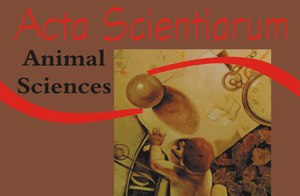Since probiotics have proved to be a viable alternative to antibiotics as enhancers of animal growth, the performance, uniformity and mortality rates of the jundiá (Rhamdia quelen) larvae fed on diets with different probiotics were evaluated. Jundiá larvae, aged four days post hatching, were fed during 21 days with the following diets, in four replicates, namely, CO: control feed, without probiotics; PP: feed with Pichia pastoris; SB: feed with Saccharomyces boulardii; BT: feed with Bacillus cereus var. toyoi. Among the tested probiotic, Bacillus cereus var. toyoi had the best results due to the fact that the larvae were 25% heavier than CO at the end of the first week; the difference increased to 28% by the end of the trial. Further, BT also improved uniformity and Fulton's condition factor. Larvae fed on Saccharomyces boulardii had the lowest body weight, whereas those fed on Pichia pastoris grew similarly to the control diet. Mortality rate was not affected by treatments. Bacillus cereus var. toyoi improves the performance and uniformity of the larvae, but does not affect mortality rate.
fish, uniformity; Bacillus cereus var. toyoi; Saccharomyces boulardii; Pichia pastoris

 Thumbnail
Thumbnail

